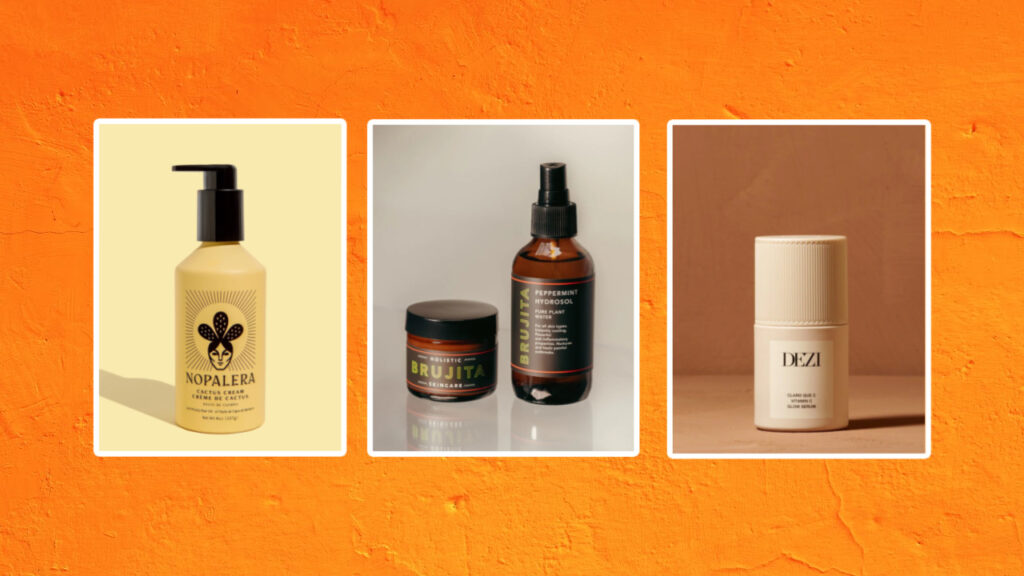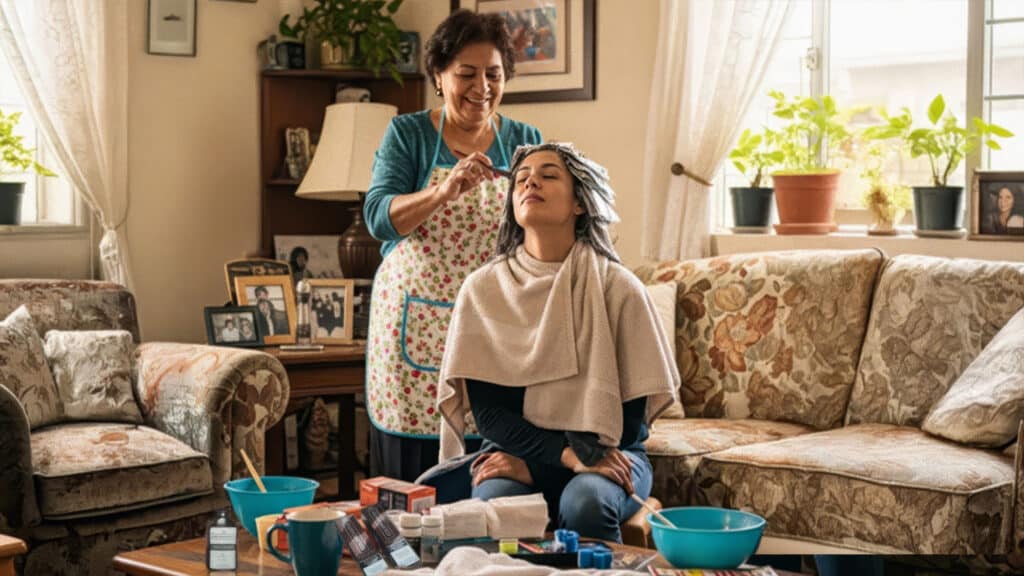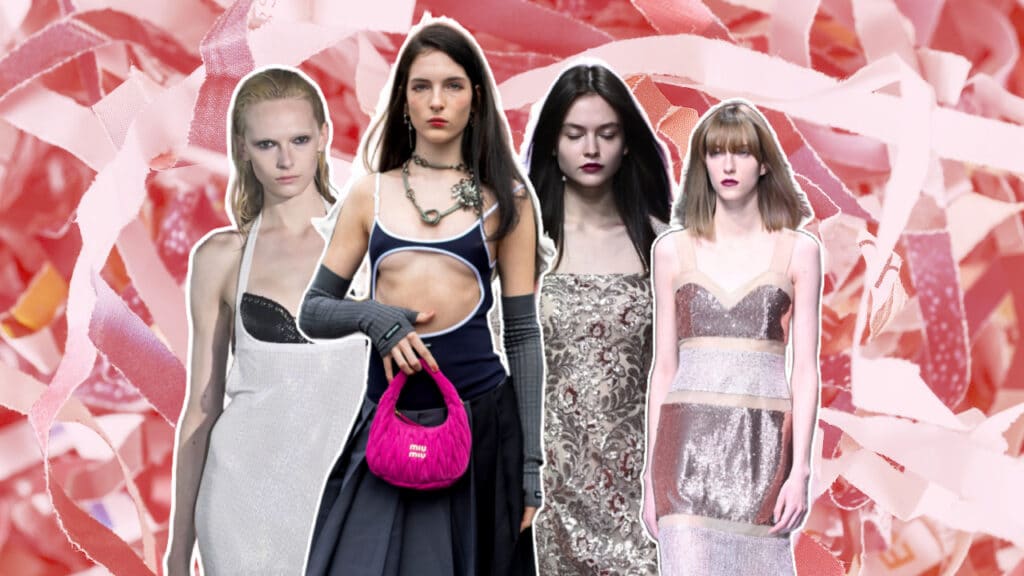
Dark Skin ‘Not So Common’? Why This Colombian Beauty Brand Is Under Fire (And 7 Brands Proving Them Wrong)
The debate and conversations surrounding inclusivity in beauty spaces aren’t new. Throughout 2024, various content creators sparked attention for calling out beauty brands on the tokenization and distortion of inclusivity with products clearly disconnected from reality. (Think of Youthforia’s black pigment marketed as a foundation for Black people.)
Others sparked healthy discussions and pleasantly surprising outcomes. Case in point: Black creator Darcei. She shared her disappointment with K-beauty brand TIRTIR’s limited tone range in a viral Tiktok video. A few months later, she became the brand’s campaign star. TIRTIR, listening to customers’ concerns, expanded its range to 40 tones.
However, not all beauty brands respond to criticism by embracing customers’ demands.
Luisa Chima: the Colombian businesswoman against inclusivity
“I think people are heavily abusing the word inclusion,” Colombian internet personality and businesswoman Luisa Chima said in response to an online wave of criticism against local beauty brands disregarding dark skin tones in their product range and imagery.
While the initial criticism wasn’t targeting only Chima’s recently debuted beauty brand, Kaba Makeup, the backlash that followed was.
In the same statement posted on TikTok in December 2024, Chima attempted to justify Kaba Makeup’s tone range. She added, “Normally when brands put out products, it’s not because we want to be inclusive or not—obviously, that can be part of a strategy—but in my case and the case of other Colombian brands, it’s about profitability.” Questionable already, but Chima’s next words truly set the internet on fire—and not in a good way.
“Most skin tones fit in [Kaba Makeup’s] 7 tones, and dark skins are not so common,” she claimed, igniting online outrage. Chima, who is not foreign to controversial statements—the same week she was under fire for her opinions on dog adoption—wrapped up her video stating, “I don’t understand why they are throwing so much hate at brands on social media as if we were doing something to discriminate against a certain group of people. The only thing we are doing is the logical thing that any entrepreneur or businessperson would do, and that is to market what sells the most.”
Are “dark skins” truly “not so common” in Colombia?
Back in 2012, the United Nations High Commissioner for Refugees (UNHCR) reported that Afro-Colombian communities represented about 10 million people and were mainly located on Colombia’s Pacific coast and Caribbean region.
In a controversial and now disputed national census in 2018, the Black, Afro-descendant, Raizal, and Palenquera population supposedly amounted to 2.98 million people. An additional survey conducted by DANE (Colombia’s statistics institution) raised the number to 4.67 million people.
While there are no updated statistics on Colombia’s current Black population, the country has historically been home to one of the largest Black populations in the Americas. According to the country’s Vice President, Francia Márquez, Colombia has the third-largest Afro population on the continent. At the 30th ESSENCE Festival of Culture in July 2024, the politician shared that 30% of the Colombian population are Afro-descendants. This represents almost 15 million people.
So, no, darker skin tones are not uncommon in Colombia.
Is Inclusivity Unprofitable?
Over the years, beauty brands have systematically disregarded the needs of certain demographics and catered to hegemonic beauty standards.
However, inclusivity and profitability in the beauty industry can go hand in hand. Several companies have recently embraced inclusive practices as part of profit growth strategies. Brands and companies are finding success by satisfying the needs of a demographic that has historically been underrepresented and unseen. Especially in sectors such as fashion and beauty. While there are challenges, consulting company McKinsey & Company says, “creating a path to a more equitable beauty market represents a $2.6 billion opportunity.”
But let’s get something straight. Inclusive business policies, practices, and product delivery shouldn’t be rooted in profitability as much as they’re meant to be in social responsibility.
So What Are The Options?
Although meeting Black people’s demands is not just about delivering a product—research, accessibility, marketing, and even product placement at stores will determine if a product is successful—there are beauty brands making strides to cater to Black people and those with darker skin tones.
Because, in this day and era, we’re rethinking who we support and shop from, here’s a list of Colombian and Latino-owned beauty and skincare brands with inclusive shade ranges.
Divaskin By Aida Victoria
Colombian influencer Aida Victoria Merlano’s beauty brand, Divaskin, is not only recognized for its star product—a colored sunscreen that comes in 4 tones—but because of the inclusive campaign that accompanied the release. The social media launch not only focused on promoting the product but also showcased the diversity of Colombian people.
Beauty Creations
With 28 shades of its Flawless Stay Liquid Foundation, Beauty Creations is a brand that must be on our radar. Since its launch in 2016, the beauty company, led by Mexican CEO Esmeralda Hernandez, has been at the forefront of Latina inclusivity. Beauty Creations delivers a wide range of makeup staples, from well-loved foundations to popular lip combos for all skin tones.
Montoc Cosmetic Tools
Although its best-selling products are makeup tools such as brushes, Colombian beauty brand Montoc has steadily expanded its product and shade range. Montoc’s Rubor Pocket Blush is a favorite among customers, and its shades are suitable for darker skin tones. The best part? Montoc is a paraben—and animal cruelty-free brand.
Rare Beauty
Selena Gomez’s beauty empire, Rare Beauty, has been a true game changer. From providing options for most skin tones to delivering product design that’s friendly to people with disabilities, the brand is making significant progress in fostering inclusivity. And proving that good practices and profitability aren’t incompatible.
Hyper! Skin
Afro-Latina brand founder Desiree Verdejo found inspiration in her own struggles with skin pigmentation to create Hyper! Skin, a skincare brand that addresses hyperpigmentation issues. The line includes Vitamin C serums, sunscreens, and masks.
“After loving skincare but being left out of the club, I created the brand we deserve. One that is rooted in realness — it’s really multicultural, centering real skin and realistic standards, and our hardworking formulas deliver real results,” states Desiree on her brand’s website.
Glamlite Cosmetics
Dominican founder Gisselle Hernandez has built a profitable business without neglecting representation. Inspired by her childhood experience of being bullied and fat-shamed, Hernandez launched Glamlite Cosmetics from her bedroom office. The brand has created a fantastic portfolio of products by securing licenses with Disney, Mattel (Barbie), and Kellogg’s. Vegan Bake & Set Powders are among the brand’s most popular products—and, of course, they come in shades suitable for dark skin tones.
Ame Cosméticos
A go-to beauty brand for Colombian women, Ame Cosméticos, is known for quality makeup products and expanding offerings. Although the brand is mainly recognized for its lip products, Ame’s foundations and concealers have been well-received on social media, particularly among Black Colombian creators.




